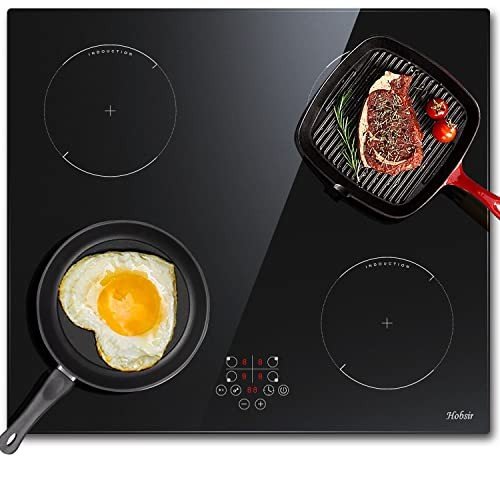Understanding Cookers and Hobs: A Comprehensive Guide
Cooking is an important element of day-to-day life, and the development of kitchen devices plays a considerable role in how effectively and efficiently individuals prepare their meals. Amongst these home appliances, cookers and hobs are 2 of the most important instruments found in modern-day kitchens. This post explores the distinctions in between cookers and hobs, examines their different types, and offers insights on their features, upkeep, and choice procedure.
What are Cookers and Hobs?
Cookers
Cookers are detailed kitchen appliances designed for cooking jobs, generally combining an oven and a hob. They are available in various setups and types, catering to diverse cooking requirements and choices.
Hobs
Hobs, on the other hand, are more concentrated home appliances mostly used for boiling, frying, and other stovetop cooking techniques. Hobs can be standalone units or an integrated part of larger cookers.
| Function | Cookers | Hobs |
|---|---|---|
| Function | Integrates oven and hob | Stovetop cooking just |
| Style | All-in-one system | Different unit or integrated |
| Types | Electric, gas, dual fuel | Gas, electric, induction |
| Setup | Enables more flexibility | Built into the countertop |
| Cost Range | Typically higher | Varies commonly |
Types of Cookers
1. Electric Cookers
Electric cookers use electricity as their primary source of power. They often feature an integrated oven and numerous cooking zones on the hob.
Advantages:
- Even heat distribution
- Available in numerous styles (e.g., freestanding, integrated)
2. Gas Cookers
Gas cookers run on gas or liquefied petroleum gas (LPG). They provide immediate heat control, making them a favorite among professional chefs.
Advantages:
- Instant heat adjustments
- More budget friendly functional expenses
3. Double Fuel Cookers
Double fuel cookers combine the heat of gas with the effectiveness of electric ovens. This setup enables for the best of both worlds, supplying control and constant results.
Benefits:
- Flexible cooking options
- Accurate control over stovetop cooking and baking
4. Range Cookers
Range cookers are bigger and more effective than basic cookers, including several ovens and hobs for comprehensive cooking tasks.
Benefits:
- Ideal for big families or cooking for events
- Offers different cooking alternatives in one device
Kinds of Hobs
1. Gas Hobs
Gas hobs are preferred for their quick heating and strong flame, making them excellent for scorching and stir-frying.
Advantages:
- Instant heat and control
- Compatible with any kind of cookware
2. Electric Hobs
Electric hobs warm up using electric coils or glass-ceramic surfaces, providing a modern-day look and effective cooking.
Advantages:
- Easier to clean up
- Consistent surface area ideal for various pots and pans
3. Induction Hobs
Induction hobs use electromagnetic fields to heat pots and pans directly, using quick and energy-efficient cooking.
Advantages:
- Safe (cool surface after eliminating pots and pans)
- Energy-efficient and exact
4. Solid Plate Hobs
These standard hobs use strong electric plates that warm up gradually.
Advantages:
- Rugged and durable
- Normally more economical than other types
Secret Features to Consider
When picking a cooker or hob, several functions must be taken into account:
- Size and Space: Consider the size of your kitchen and the amount of work space required.
- Cooking Style: Choose based on choice-- gas for control, induction for effectiveness, etc.
- Performance Ratings: Look for energy-efficient designs to minimize energy costs.
- Reduce of Cleaning: Smooth surfaces assist in simple upkeep.
- Safety Features: Automatic shutoff, flame failure devices, and child locks improve safety.
Upkeep Tips
Preserving cookers and hobs prolongs their life expectancy and ensures safe operations.
- Regular Cleaning: Wipe down surfaces after use to avoid accumulation.
- Inspect Seals: Check oven door seals frequently for wear and tear to preserve performance.
- Service Regularly: Schedule expert maintenance a minimum of once a year.
- Suitable Cookware: Use cookware suitable for your hob type to avoid damage.
Frequently Asked Questions (FAQs)
What is the difference between a cooker and a hob?
A cooker integrates an oven and hob in one unit, while a hob is generally a standalone appliance for stovetop cooking.
Do I require a professional to install a gas cooker or hob?
Yes, professional setup is suggested for gas appliances to ensure security and compliance with local regulations.
Can I utilize any kind of pots and pans on induction hobs?
Induction hobs need magnetic pots and pans. Buy Ovens Uk -steel or cast iron pots work best. Non-magnetic materials will not warm up.
Are electric cookers more energy-efficient than gas cookers?
While both have advantages, electric cookers tend to be more energy-efficient total, especially with modern, high-efficiency designs.
How frequently should I clean my cooker or hob?
It is best to clean them after each usage and carry out an extensive cleaning weekly to avoid buildup and residue.
Comprehending the distinctions, features, types, and upkeep tips for cookers and hobs is essential for any home cook. By selecting the best device matched to their cooking needs, users can improve their cooking experience, making meal preparation an efficient and satisfying chore. Whether choosing the immediate control of gas or the streamlined performance of induction, selecting the suitable cooker or hob can cause an especially boosted kitchen experience.

